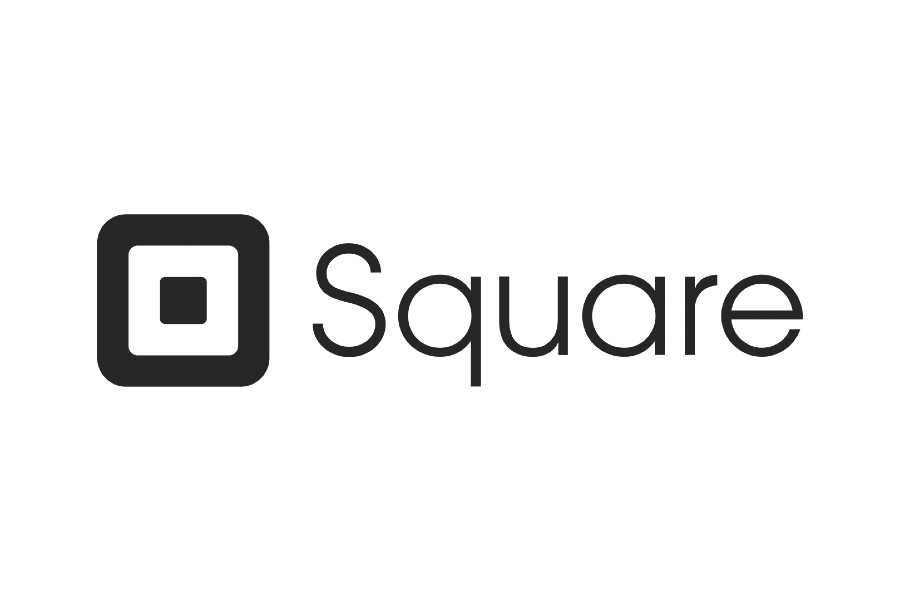
There is a growing trend towards labeling business products as “ethically sourced”—but what does that term really mean? Often used interchangeably with “sustainably sourced” or “responsibly sourced”, ethically sourced refers to components of the supply chain that are obtained in an ethical way.
Businesses that have ethically sourced products and services do so because of their own business ethics and principles. This could help improve their reputation, increase sales, boost employee morale, and comply with their industry legal requirements if there are any.
Key Takeaways:
- Ethical sourcing aligns with the growing trend of ethical consumerism and offers many benefits to small businesses.
- Implementing ethical sourcing involves partnering with suppliers who treat workers fairly, use sustainable materials, and maintain transparency throughout the supply chain.
- Regularly reviewing and improving your sourcing policies ensures continuous alignment with ethical standards and regulatory compliance and enhances overall business performance.
What Is Ethical Sourcing?
Ethical sourcing is the practice of ensuring that all products, goods, and services are sourced responsibly and sustainably. It entails prioritizing ethical considerations, such as fair labor practices, environmental sustainability, and community well-being.
Ethical sourcing differs from typically purely profit-driven sourcing because it considers the broader impact of your business operations. Some of the various aspects and considerations for ethical sourcing are:
Labor Rights & Working Conditions
For small and medium-sized businesses, ethical sourcing means partnering with suppliers and manufacturers that treat workers fairly and provide safe working conditions. This includes ensuring fair wages, reasonable working hours, and protection against exploitation or abuse.
Businesses whose supply chain might span multiple countries should look for partners who exceed basic labor laws and uphold high ethical standards. Prioritize companies, organizations, or co-ops that are committed to fair labor practices and worker well-being.
Environmental Sustainability
A key aspect of ethical sourcing is minimizing the environmental footprint associated with sourcing activities. This may involve:
- Procuring materials from sustainable and responsibly managed sources such as Sustainable Forestry Initiative (SFI) wood or organic cotton
- Reducing energy consumption (e.g. using LED lighting and investing in renewable energy resources
- Minimizing waste generation by adopting strategies such as recycling, composting, or reusing materials whenever possible
- Using sustainable packaging
- Mitigating pollution such as reducing water usage and using non-toxic dyes
Social Responsibility
Ethical sourcing extends beyond the confines of business operations to encompass social responsibility towards communities and partners. This may involve sourcing from local farmers, ensuring fair wages for suppliers, and supporting community projects in the areas where your suppliers operate.
Transparency & Accountability
Ethical businesses prioritize transparency by disclosing information about their supply chain, including supplier relationships, sourcing practices, and compliance with ethical standards.
Uncommon Goods has Seven Guiding Principles, which include the company’s commitment to fair living wages, recycling, and sustainable sources.
Compliance with Legal & Regulatory Standards
Ethical sourcing also includes compliance with relevant laws, regulations, and industry standards governing labor practices, environmental protection, and ethical business conduct. This includes adherence to international labor standards, such as those outlined by the International Labour Organization (ILO) as well as industry-specific regulations.
In essence, ethical sourcing is more than just a business strategy but a more conscientious and accountable approach to business practices. It reflects a proactive stance towards social and environmental responsibility.
Ethical vs Responsible vs Sustainable Sourcing
Ethical sourcing, responsible sourcing, and sustainable sourcing are terms often used interchangeably. Although there is no official distinction among these terms, they encompass distinct aspects of procurement practices.
- Responsible Sourcing: This refers to social and environmental aspects when working with suppliers. Businesses that commit to responsible sourcing consider social issues such as labor standards, diversity, and human rights and environmental issues, including pollution, carbon footprint, and waste management. Compliance with laws and regulations and meeting minimum industry standards are the main focus of this approach.
- Sustainable Sourcing: Businesses committed to sustainable sourcing focus on long-term sustainable practices. This includes the conservation of resources, recycling, and waste and carbon footprint reduction. While it overlaps with responsible sourcing, sustainable sourcing goes beyond minimum standards and legal requirements.
- Ethical Sourcing: Ethical sourcing ensures that products and materials are both responsibly and sustainably sourced throughout the supply chain. It involves a proactive and holistic approach to addressing environmental and social issues and also observes honesty and integrity in dealing with customers and competitors.
You may think of these three as levels of sourcing practices and commitment. Responsible sourcing ensures the supply chain meets minimum social and environmental standards. Sustainable sourcing goes beyond compliance to improve environmental conditions. Ethical sourcing combines both approaches, ensuring materials and services meet industry standards and are obtained ethically, sustainably, and socially consciously.
Benefits of Ethical Sourcing
Embracing ethical sourcing practices can yield a wide array of advantages for businesses. Here are some key benefits:
Enhanced Reputation
Consumers are now more aware and mindful of how their products are sourced and produced. With a market that’s increasingly conscious of ethical considerations, maintaining a reputation for ethical sourcing can enhance brand trust and loyalty.
According to a survey, around 88% of consumers would prioritize buying from companies with ethical sourcing practices, and 83% would even pay more for ethically sourced products and services.
Conversely, abstaining from ethical business practices proves detrimental to a business’s reputation. Amazon, as an example, is one company that is often mentioned for unethical practices such as tax avoidance or poor working conditions. Another big company, Nestle, has been called out for their irresponsible advertising and use of unsustainable materials.
Increased Sales
Ethical sourcing can directly influence consumer buying behavior, leading to higher sales. Businesses with a strong reputation for ethical practices often experience increased sales as a result. In a study, 59% of surveyed sustainable procurement leaders reported higher sales brought about by their improved reputation.
Improved Employee Satisfaction
Ethical sourcing initiatives resonate not only with consumers but also with employees. Demonstrating a commitment to ethical practices can boost employee morale and engagement. According to a study, ethical leadership increases employee satisfaction. This can lead to higher levels of employee retention and productivity, contributing to overall organizational success.
Reduced Costs
While ethical sourcing may require initial investments, it can result in long-term cost savings. Avoiding disruptions caused by unethical practices and implementing efficiency improvements can lead to lower production costs over time. Unilever has practiced sustainable sourcing since 2008, and it has allowed the company to cut down costs by as much as $15 billion.
Regulatory Compliance
Ethical sourcing practices align with regulatory requirements and industry standards related to labor rights, environmental protection, and social responsibility. Adhering to these standards will ensure compliance with any applicable laws and regulations and help businesses mitigate legal and regulatory risks. Additionally, ethical sourcing practices will reduce the likelihood of fines or penalties in the event of regulatory scrutiny.
Ethical Sourcing Best Practices
Implementing ethical sourcing practices is essential for businesses to ensure they’re making responsible choices in their supply chain. Here are some simple steps to help you source materials and services more ethically:
1. Define Your Ethical Sourcing Policies
Start by creating clear and comprehensive ethical sourcing policies that reflect your company’s values and goals. Specify what ethical standards you expect from suppliers, covering areas like fair labor practices, environmental sustainability, human rights, and community impact. Use this policy as your guide when you partner with new suppliers.
2. Conduct Due Diligence
Before working with any suppliers, thoroughly check their practices to ensure they align with your ethical sourcing policies. This means assessing their labor practices, environmental impact, and adherence to legal requirements. Use tools like questionnaires, site visits, and audits to gather information and verify their ethical performance.
You can start searching for ethically sourced suppliers by checking directories such as Ethical Consumer, Ethical Brand Directory, and B Corp. Using tools such as supply chain risk management software can also help in finding the right suppliers that uphold your ethical sourcing principles.
3. Foster Supplier Engagement & Collaboration
Build strong relationships with your suppliers based on trust and transparency. Encourage them to uphold ethical standards and continuously improve their practices. While small businesses may not have much influence over their suppliers, leading by example and maintaining open communication can inspire positive changes. Work together to address any issues and support each other in meeting ethical sourcing goals.
4. Implement Risk Assessment Processes
Create simple processes to spot and handle potential ethical risks in your supply chain. Regularly check the social, environmental, and economic impacts of your sourcing activities. Use easy-to-understand tools like checklists and basic risk assessments to identify and prioritize risks, and develop practical strategies to address them.
5. Ensure Transparency & Traceability
Increase transparency in your supply chain by tracking where your materials and products come from. Use simple tools like barcodes and tracking software to ensure they meet ethical sourcing standards. Communicate openly with your partners and customers about your sourcing practices and performance.
6. Commit to Continuous Improvement
Foster a culture of continuous improvement by regularly reviewing your sourcing policies and performance. Seek feedback from partners and customers to identify areas for improvement and adjust your strategies as needed to achieve your ethical sourcing goals. Keep monitoring your progress and make ongoing improvements over time.
Ethical Sourcing Legislation
Legislations surrounding ethical sourcing are location- and government-specific. Here are some of the first ethical sourcing legislations implemented:
Section 307 of the Tariff Act 1930
- What does it require? It mandates that imported goods produced with forced labor are prohibited from entry into the United States.
- Who does it apply to? This requirement applies to all individuals, companies, and entities involved in importing goods into the country, regardless of their size or industry.
- What are the penalties? Possibility of criminal and civil penalties under anti-trafficking laws.
California Transparency in Supply Chains Act in 2010
- What does it require? It requires businesses to disclose their efforts to eliminate slavery and human trafficking from their supply chains.
- Who does it apply to? It applies to retail sellers and manufacturers doing business in California with annual worldwide gross receipts exceeding $100 million.
- What are the penalties? Businesses that do not comply with the act may be subject to civil penalties of up to $2,500 per violation. Aside from this, non-compliance may potentially lead to reputational damage and loss of consumer trust.
- What does it require? It requires certain commercial organizations operating in the UK to publish an annual statement detailing the actions they have taken to ensure that slavery and human trafficking are not taking place in their own operations and supply chains.
- Who does it apply to? The Act applies to commercial organizations that conduct business in the UK, supply goods or services, and have a total annual turnover above £36 million.
- What are the penalties? Failure to comply with the requirements of the UK Modern Slavery Act can result in reputational damage, financial penalties, and potential legal action. Offenses range from 12 months imprisonment, a fine, or both to 10 years on indictment.
- What does it require? It requires the plastic packaging of all finished products to contain a minimum of 30% recycled plastic.
- Who does it apply to? It applies to all businesses in the UK that manufacture or import more than 10 tonnes of plastic packaging a year.
- What are the penalties? Non-compliance may incur a penalty of £500, with continued failure resulting in a daily penalty of £40 per day.
Many other legislations around the world promote ethical sourcing practices for businesses. Make sure to find out any applicable laws in your area.
Frequently Asked Questions (FAQs)
Click through the sections below to read answers to common questions on ethical sourcing:
Other terms used interchangeably with ethical sourcing are responsible sourcing and sustainable sourcing. It means ensuring that the products and materials you buy are made in a way that respects people, the environment, and ethical standards.
Ethical sourcing strategies involve methods to ensure that your supply chain aligns with ethical standards. This includes working closely with suppliers, conducting audits, and setting clear policies to promote fair labor practices and environmental sustainability.
The goals of ethical sourcing are to promote fairness, sustainability, and transparency throughout the supply chain. This means protecting workers’ rights, minimizing environmental impact, and fostering positive social and economic outcomes for communities involved in production.
Bottom Line
Ethical sourcing has become a critical aspect of modern business operations that can enhance reputation, increase sales, and boost employee satisfaction. It means implementing policies to ensure that the whole supply chain is sourced responsibly and sustainably.
These practices can mitigate risks, ensure compliance with regulations, and contribute to positive social and environmental impact. Taking proactive steps towards ethical sourcing is not only beneficial for busine





